- From Faith Current: “The Sacred Ordinary: St. Peter’s Church Hall” - May 1, 2023
- A brief (?) hiatus - April 22, 2023
- Something Happened - March 6, 2023
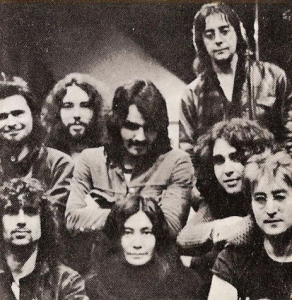 NANCY CARR • I think Michael’s comments on the previous post about Paul McCartney’s seeking to entertain an audience, while Yoko Ono seeks to instruct one, are right on the mark and help clarify why people frequently can’t stand one or the other of them. What I find interesting about their respective tendencies is that both do their best work (in my opinion, of course) when they ease off those attitudes. When McCartney worries less about whether people will like what he does, and when Ono expresses her musical gifts without apparent concern for whether the results sound explicitly experimental, they sound freer and do some surprising things.
NANCY CARR • I think Michael’s comments on the previous post about Paul McCartney’s seeking to entertain an audience, while Yoko Ono seeks to instruct one, are right on the mark and help clarify why people frequently can’t stand one or the other of them. What I find interesting about their respective tendencies is that both do their best work (in my opinion, of course) when they ease off those attitudes. When McCartney worries less about whether people will like what he does, and when Ono expresses her musical gifts without apparent concern for whether the results sound explicitly experimental, they sound freer and do some surprising things.
Thus I find myself liking relatively neglected works by both McCartney and Ono, often albums that have been critically panned. “Red Rose Speedway” is one example from McCartney’s catalog: many critics at the time of its release (1973) hated it even more than “Ram,” which is saying something. Yet, with the exception of the overplayed “My Love,” I find this album’s playfulness and musical variety delightful. Ono’s release from the same year, the double album“ Approximately Infinite Universe,” similarly doesn’t get much positive critical attention, but it’s the album of hers I listen to most.
Part of what makes “Approximately Infinite Universe” feel different from many of Ono’s other albums is the presence on it of Elephant’s Memory, a band she and John Lennon championed with Apple. The band’s bluesy sound and solid musicianship give the album a consistent groove, and working with them seems to have brought out Ono’s more melodic tendencies. There are songs I could do without — for example, “Catman (The Rosies Are Coming)” goes on way too long — but the good songs are very good. It’s true that Ono’s voice takes some getting used to, but that effort is worth it.
The slower, more meditative songs are almost all excellent. “Looking Over From My Hotel Window” and “I Want My Love to Rest Tonight” are my favorites. The unevenness in her voice makes the empathy she expresses in “I Want My Love to Rest Tonight” more moving, and the piano in this song is lovely.It’s easy to associate Ono only with her more strident singing and deliberately unconventional song structures, just as it’s easy to think of McCartney only in terms of his radio hits. But it’s worth digging deeper into both of their musical catalogs.

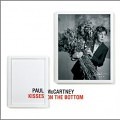
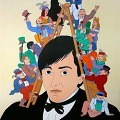
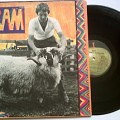

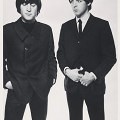


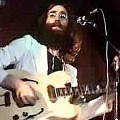

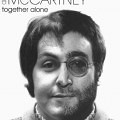

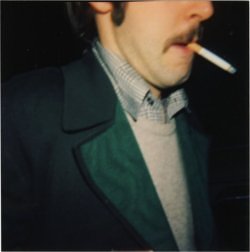
Thanks for the post, Nancy. But I’m a little confused. Who are these people who can’t stand Paul McCartney? He’s a brilliantly prolific musician/songwriter, probably the best of all time. He seems to be a very nice person, a family man and one who has handled fame amazingly well. He has stayed grounded and treats people with respect and kindness. Even if one reads anti McCartney books or articles, all you can come away with is what? He works hard and can be a perfectionist to a fault (if that’s even possible). He is demanding of those he works with. Sometimes his sentimentality can get the best of his songwriting. I think he’s earned every one of those rights via his work in the ”60s.
I’m really having trouble understanding this comparison of Yoko and Paul in these last two posts. I already stated my thoughts on Yoko yesterday in the comments, so I won’t repeat myself. Although I will say, in addition to yesterdays comments and to contrast with what I just said about Paul, Yoko has treated people with contempt her whole life. She can be amazingly mean spirited. She tries to destroy people she does not like or that she disagrees with.
Paul has created or helped to create the greatest music of all time. Ok, I can understand you like Approximately Infinite Universe. But really, you’re trying to compare her music with Macca?
I just don’t get it.
-Craig
Craig, I do enjoy and value some of Yoko Ono’s music. I enjoy much more of Paul McCartney’s music, and I appreciate the value he places on his audience.
I think McCartney and Ono both have flaws as people, and frankly it’s hard to know the whole truth about either. Considered as musicians and singers, McCartney clearly outshines Ono, IMO.
Basically I wanted to say that they’ve both produced music of value that tends to be overlooked, and that they do so when they get away from the tendencies Michael described (McCartney’s people pleasing and Ono’s stridency).
Craig: First let me say I am a huge Paul fan. I think Ram is a masterpiece and that Paul took a ridiculous amount of unwarranted grief from critics for years — criticism that was so intense it scarred him and left him confused about which direction to follow musically. That confusion led to some fairly muddled work in the 80s. Paul got his groove back sometime in the 90s and has been producing strong albums since then (with a few duds of course) but he still has to put up with some critics who forever insist that nothing he’s ever produced as a solo act is as good as … well, you know who, yada, yada, yada. So Paul has plenty of critics who can’t stand his work.
That said, and keeping in mind I’m a big McCartney fan, I have to disagree with you on Yoko. I don’t see her as a saint and I think she’s definitely been manipulative at times. But I don’t think Yoko is as evil as you have made her out to be.
And, in fact, there are plenty of people who say that Paul has been manipulative at times. There are people whom Paul has cut out of his life for doing or saying something he doesn’t like. He’s a very very private man, and anyone who violates his protective circle by speaking out of school and dishing about things Paul sees as private (like Denny Laine did in that terrible gossipy interview he gave to the Daily Mail years ago) become persona non grata to Paul. He can be just as ruthless about people who cross him as you seem to think Yoko is.
Yes, he’s often a kind and generous person. But you don’t get to where he’s gotten without also being ruthless and ambitious and determined to get your own way.
You also have to understand that there are certain music circles in which Yoko is held in higher esteem than Paul. She’s deeply respected by bands like Flaming Lips, B-52s, Sonic Youth and many other heavy hitters in the indie world. Some of those same groups give Paul very little respect, and some downright hate him (for being “commercial” etc.)
And of course, there are other circles of the music business who think like you do, that Yoko hasn’t produced anything of lasting value ever in music.
Certainly Paul’s contributions to the world of music are much larger and more important than Yoko’s but she’s made her mark, as well. And I think it’s important to respect her, too.
— Drew
“Basically I wanted to say that they’ve both produced music of value that tends to be overlooked, and that they do so when they get away from the tendencies Michael described (McCartney’s people pleasing and Ono’s stridency)”
Fair enough. Good points as well. Thanks for the discussion.
-Craig
I find Yoko’s art interesting, though a little of it lasts me a long time; I think she was in her time a most piquant (and still far from common) presence in the culture. And I really don’t care, except anecdotally, whether she is personally likable or not. It has no bearing on the quality of her work, and our work is what we leave behind.
Why this eternal presumption that we have to LIKE artists, apart from their work?
Yoko is probably not as bad, nor Paul as great (personality wise) as I may have intoned. I consent to that. That being said, I just don’t see any reason to compare them. They are forever connected, yes, and this is a blog with which it is fun to throw out ideas/concepts/theories/questions, and I think that is all good and well. Perhaps my taste is not refined or indie or underground or imaginative enough for Yoko. In fact, that probably is the case. All I know is that I hate her music. I don’t hate Yoko the person (Devin) I HATE her music, and I don’t think it even qualifies as music. But music can be whatever one decides they want it to be, as Yoko has so wonderfully screamed to us for over 40 years. What really riles me up is when she used to interfere/interrupt John the few times he got on a stage in the ’70s. Im also skeptical anytime another band pays homage to Yoko, especially when John was alive. Didn’t the B-52s say some nice things about her in 1980? What were they rewarded with? Only John promoting and lauding them in every interview he gave for the rest of his life. She’s had an in with Jann Wenner since 1970 so I don’t believe or trust one single thing that magazine writes about her music because RS always has ulterior motives when it comes to Yoko.
Nancy does make good points about Paul. Hard to imagine that some of his work is overlooked, but it’s happened. But I have a question: why is people pleasing portrayed as such a negative trait? You act as though it’s something horrible that Paul has made music for the masses. If this is getting into the indie scene and questions of “selling out” then I’m out of that discussion, can’t stand that argument.
Sorry if this was negative in theme. I don’t want to be but I just feel strongly about Yoko. She’s a lightning rod!
-Craig
Craig, you should never feel you can’t express yourself here honestly and directly, as long as it is within the bounds of civil discourse (otherwise we will kill you). But you’re right that Yoko is a lightning rod, and I think your posts show how difficult-to-impossible it is for many to separate the artist from the public figure from (what they perceive to be) the essential person.
I responded as I did because your remarks on Yoko addressed not her music but her personal ethics: “Yoko has treated people with contempt her whole life. She can be amazingly mean spirited. She tries to destroy people she does not like or that she disagrees with.” Well, come on. People don’t get to be successful by being nice. And without doubt she has had many experiences both known and unknown to us that have convinced her that mean spirits are often more useful than benevolent ones.
I have a taste for the avant-garde, and I am a perverse son of a bitch in other ways, so yes, I like to dig out her albums once every Halley’s comet or so, both with John and solo, and subject myself to the bracing torture of her committed screech. Or, for that matter, to the simple breezy beauty of “Sakura,” a Japanese lullaby she sang on the Mike Douglas show; or the heartbreaking “Mrs. Lennon,” whose melody Alec Chilton stole outright (without attribution or remuneration, as far as I know) for Big Star’s “Holocaust”; or the big-band rock of “Greenfield Morning”; etc. Not to mention “Angry Yoko Jam,” one of the highlights of the Get Back sessions. There’s some real good shit in there.
I just attended the EMP Pop Music Conference in New York, and one of the speakers delivered a talk on “‘Mother Superior’: Maternity as Performance Art in the Work of Yoko Ono.” It seemed so beautifully obvious once it was pointed out, but themes of motherhood and the absent child were present in Yoko’s art (performance, poetry, song) long before she met John. She’d had several abortions dating back to the ’50s, when contraception simply wasn’t widely available in Japan, and the son she lost in 1969 was far from her first miscarriage. Through it all she kept working, kept scheming and screaming, because for whatever reason, that stoic face and strident presentation was how she wanted to express herself. In so expressing she drew the attention, admiration, and partnership of some of the top avant-gardists of her time, from La Monte Young to John Cage to Ornette Coleman. By any objective measure, she is an artist, someone who suffered to create and worked her ass off to self-promote, and who followed highly personal and problematic themes throughout her career in forms that were stylistically quite varied but psychologically tight and consistent.
Yoko is not a fake. She may be loathsome personally and intolerable for most people to listen to, but her work is there and it has body and substance and persistence and it is quite real.
And about interfering/interrupting John during performances in the ’70s: he put her there. His mistake, if mistake it was. (Frankly, John and Chuck Berry weren’t sounding that good together even before Yoko began caterwauling behind them.)
Her work interests me, ehh, about that much. But it interests me. I am always hungry for things to be interested in, and if I reduce my range to artists I find personally likable or aurally pleasing, I will have nothing to do all day but play with my ding-a-ling (pushing the bounds of civil discourse there).
Good stuff, Devin. I wish I had the ears or patience for more avante garde(y) music. Maybe I’m not pushing myself enough. Maybe, IhaventGotaClue. Anyone?
Ok, I have a confession to make, which might help explain some of my attitude above: I just finished Goldmans book a few days ago. Perhaps I should stay away from commenting for a week or two in order to filter my head. If some of you haven’t read it; Yoko is shown to be something of a monster.
It’s weird though, I went into this book fully aware of its reputation and its critics. But you (or, I) cant help but believing most of what you’re reading. You think to yourself as your reading, “yeah, that makes sense.” I feel like I need to read a Lennon bio that is more positive right now in order to balance out my thoughts a little bit Maybe I’ll get Normans book out of the basement.
-Craig
Devin, if you dig Yoko’s music occasionally, nobody can argue with that, but–just as with Jeff Koons, Damien Hirst, and a lot of other post-Warhol celebrity-artists–history may treat Yoko a lot less kindly than her contemporaries have. As out-of-step as she’s seemed with the mainstream, that was never her audience; she’s always been perfectly in-step with the hyper-intellectual, hyper-academic high art priesthood, viz, “Maternity as Performance Art.” Sounds interesting, and I’m sure there’s a Ph.D. in it, but I don’t know whether that makes Yoko’s art more likely to last, or less.
It is impossible at this point to separate Yoko Ono from John Lennon, the world’s incredible remorse over his death, the power of the money at her control, et cetera. I’m not saying she’s Goldman’s monster, but to say “she may be a monster, but she’s a Serious Artist” is, I think imbuing her with a kind of importance that she surely hadn’t earned before she met Lennon, did not accrue to her during his life, and after he died, it wasn’t about her art anymore.
So we have to dispense with her work post-1980, if artistic merit is under discussion. We know why Yoko was in the Liverpool Biennial, and we also know why her entry was closeups of a breast and a vulva. She was Lennon’s widow and, like Heinz ketchup, has a “crazy conceptual artist” brand to defend. Branding, celebrity, and manipulated outrage is at the very core of post-Warhol contemporary art, and the evanescence of all of those things is why I believe it will wear very, very poorly.
To me, art is what happens when it’s just you and the object, and art that doesn’t/can’t/won’t communicate with you is lousy, art that’s not doing its job. Seventy five years after the Armory Show, asking “what is art?” or shocking the bourgeoisie simply isn’t enough. It probably wasn’t even enough in 1960. Did Yoko move the football forward a bit? Perhaps. All I can say is, despite her relentless presence in the media my entire life, there’s a opacity and neurotic need for dominance central to Ono’s art that prevents me from connecting with it, and I’m far from the only person to feel this. In fact, this experience of non-connection is so common as to be proverbial. This leads me to believe that it her work is a cultural artifact of our time, not something that will connect across centuries.
Not that Ono’s art bothers me, or I think there’s anything wrong with it. Her instructions are kind of neat, until one reads enough koans, there’s often a kind of humor in her work, and I like pictures of erections and bottoms and breasts and vulvas as much as the next guy. The only time I really get mad is when she hauls out Lennon’s bloody clothes to sell an album or get some ink. That’s part of some decades-long psychological dance that I find very distasteful and want no part of, and I think that’s at the heart of much of the resistance she occasionally still receives.
Anyway, she seems happier now, and that is good. It will be interesting to look down from Heaven someday and find out if she’s a great, medium, or little artist. I wish she did more public good in the world with her fortune, but that’s her business, not mine. As said earlier, I hope she’s kept progressing and working on her stuff, and come to some good place.
Love this discussion, guys
Michael, I know you have read Goldman, and we briefly discussed it the other day. But I want your take on a few things.
Do you believe the assertion that Yoko helped woo John away from May Pang, and thus from Paul in 1975, with some weird, quasi mystical force?
Did Yoko take John away from Janov because he was telling John to separate from Yoko?
Was John hooked on heroin in the late ’70s?
And finally, the grandest of them all… What kind of life would John have lived in the ’70s if he and Yoko never met?
Obviously anyone can answer these, but I know Michael read the book, that’s why it’s directed as it is. If you don’t want to answer these questions, don’t worry, I won’t be offended. Just thought I’d throw them out there because I find them fascinating.
-Craig
Mike, I’ve been having this same disagreement with friends for years, and you all have the same sensible, rational reasons for hating Yoko’s guts. I feel indifferent to her guts. It’s her work that interests me, when it interests me. As I said, I’m perverse, and I don’t take my cues from the proverbial.
Aw, Devin, my feelings about Yoko are 95% about myself and 5% about what little I know about her. Her stuff doesn’t do it for me, but if it gives you pleasure, god bless. Having tastes as narrow as I do, hurts no one but myself. Your ability to appreciate widely speaks very well of you and has surely given you a lot of extra pleasure in life.
Craig, I have opinions about those questions, but they’re just guesses based on nothing more than what you’ve read.
What Goldman points to in 1975 sounds to me like intense autosuggestion with aversion therapy, and you could hire that kind of expertise if you had the money. I don’t know if that’s what happened, but Lennon was by all accounts a HIGHLY suggestible person. He was also a flake who let people down, so the whole thing could’ve been a fantasy he cooked up to lay it on Yoko. Two people know, and the one still alive’s not talking.
As to Janov, I have no clue, but my own experience with self-improvement suggests that the deeper a transformation that’s required, the more willing one has to be to sacrifice every relationship. An intense program like Primal Scream would likely have required real changes at a basic level; would that have included divorcing Yoko? Perhaps. The possibility doesn’t sound crazy, but that’s all that can be said for it.
Heroin: My guess would be “yes.” I hope I’m wrong, though. I want to believe Lennon was clean, and happy. Hell, I want to believe he’s secretly living on Anguilla.
As to your final question, paradoxically I think Yoko probably saved John’s life in late ’67 and ’68; if so, I am really grateful to her for that. If he’d been able to get through that period somehow and into the 70s, I suspect he would’ve ended up a Scientologist or something. He was a man in search of a framework for his life. That, plus his level of fame and fortune, is a really dangerous combination.
Or he could’ve blossomed further. John Lennon was nothing if not surprising, and I do think that–flawed though he was–he learned. He was a fascinating work-in-progress, and deserved to develop in safety and happiness, as we all do.
Thanks, Mike.
I too once believed (and I think I still do) that Yoko might have saved John in the late ’60s. It’s just amazing; the more we dig into John’s life, the more we see how unbelievably troubled he was. I really feel for him, he had many reasons to be happy, yet he just couldn’t shake his childhood, and I don’t blame him.
Another question: (sorry for peppering you, but I love hearing your take) Does Goldman play up the period in which John and May lived on Sutton Place in NYC, after coming back from LA? John does seem to have been productive with Walls and Bridges and rerecording Rock n Roll in addition to working with Bowie and Elton. Goldman makes him out to be joyous and content, yet I didn’t detect any specific quotes or references from John (given by John during this period, not years later when he was attempting to re-write history) or others about his mood during this time. Or was John truly still miserable and biding his time until he could move back into the Dakota?
And this leads into May. Could she have been more than just his girlfriend for those few years if Yoko didn’t interfere? From what I’ve read about her, even excluding Goldman, she comes across as genuine and supportive and loving. Exactly what John (or any man for that matter) would need to thrive. I’ve always held a soft spot for May. She got caught in this amazing situation and ended up being completely burned. (she was also TOTALLY CUTE back in the day!)
-Craig
http://www.telegraph.co.uk/culture/photography/9160041/Yoko-Ono-Johns-affair-wasnt-hurtful-to-me.-I-needed-a-rest.-I-needed-space.html
Very interesting interview with Yoko that appeared just a couple days ago. She’s pretty open and honest about a number of things, although there is definitely some of her patented re-writing of history. Nonetheless, you all should check it out. “Being pregnant, I just felt like I had a tumor inside me.” Wow
I think all of us can agree on the fact that just about every song Paul McCartney wrote or collaborated with John Lennon between 1963 and 1970 was and is commercially and critically acclaimed.
I think we can also agree that we can’t say the same about Paul’s post-Beatles songwriting career. The quality of his output from 1971 to 2012 has NEVER been as consistently sharp as the Beatles era.
The same thing was true of John Lennon from 1971 to 1980.
JR, I’d agree with you, but I’d also remind us all that every artist has a finite amount to give; and they are either in tune with their time, or less so. Neither of these things is under the artist’s control.
Comparing anybody to The Beatles in full flood is a losing battle. A lot of things came together to make those songs so special, and while J&P’s brilliance and musicianship was part of it, it wasn’t all of it, and that’s what the solo work says to me.
I’d also argue that people are so attached to the Lennon-McCartney legend — and so attached to the idea that the two men were better together than apart — that people can’t judge John and Paul’s solo work with any degree of objectivity. That solo work ALWAYS suffers by comparison with people’s nostalgia for the Beatles because fans hear what they want to hear, and they disregard weaknesses in the Beatles music as much as they focus intensely on weaknesses in their solo work.
People translate their familiarity with the material and their emotional ties to the music into the notion that nothing anyone ever did, including John and Paul individually, could match the Beatles. So is it really that the quality of their solo work isn’t as good? Or is it that people don’t want to hear that?
Then why is it that I know people with sound musical judgment who dislike the Beatles’ music, and prefer, say, the Rolling Stones? Or the Kinks? Or The Who? I know people who prefer Ram and Plastic Ono Band to any of the Beatles’ records. Their musical taste is no worse than mine, it’s just different.
I’m a huge Beatles fan. But sometimes the pedestal that people raise the band up on seems a bit shaky.
— Drew
Drew,
The pedestal would be shaky, if you’re simply talking about the music. But it’s not just about the music, as pleasingly pure as that feels to say–it’s also about how the group was perceived in its time, and the things it was able to achieve that were tangential to the music. How many people first heard about meditation via The Beatles? Did The Beatles invent meditation? No–but the history of Eastern religion in the West (as well as fashion, drug use, and even politics) would be fundamentally different had they not existed.
The reaction of the world to The Beatles was so incredibly powerful it is frightening. It frightened them, for sure. The Beatles are an historical phenomenon in a way that, say, The Stones, simply aren’t. All the fine musicians and groups that came after The Beatles came into a world fundamentally shaped by them, and it was a world where their horizons were vast because The Beatles–and not The Stones or Kinks or Who or Hendrix–had come first.
It’s not simply a matter of luck or chronology. The Stones would’ve been, and were, less influential, less innovative, and less popular than The Beatles were. Stones fans hold this up as some measure of purity or commitment to “the blues”–though I’d argue if purity’s your standard, go to Chicago or Mississippi, not the London School of Economics. The very things that people ding The Beatles for–Paul’s “granny music” or John’s Joycean wordslop, or George’s Indian ramblings–are exactly why they’re more important than any other rock band. They had lots of things to say, and those things changed. (Compare The Stones, who’ve been selling the same fun-but-adolescent idea for 50 years–which is why they could keep going.) The Beatles were musically innovative, commercially dominant, culturally omnipresent, artistically diverse, and totally in tune with their era. (Which is why they couldn’t keep going.)
From stadium concerts to the rock press as we still know it today, The Beatles built the business of rock. The Beatles are the bridge between old showbiz and new, and everybody who came after took one aspect of what they did, and did it more. That’s fine and I’m glad they did. I’m glad that there’s more music in the world than just Beatle music.
But The Beatles are unquestionably an historical phenomenon, and when they broke up, that’s how they were felt. Ever since, other generations have claimed this feeling for their own icons, but that’s not something one cohort can claim. It has to be given, often unwillingly, by many cohorts.
So “the pedestal” that The Beatles are on, for me, isn’t entirely about the music. It’s what the music caused to happen in the society, and the relationship between them and every group that has come after, and also the fact that 42 years later, we’re still talking about them. For better and worse, The Beatles happened on an immense cultural scale, and that’s why they’re unique. Preferring “Sunny Afternoon” to “Day Tripper” doesn’t change the fact that, had The Beatles never happened, The Kinks wouldn’t have looked the way they did, or dressed the way they did, or been popular in America (to the degree they were), or written “Waterloo Sunset”…which, according to Ray Davies, “came to me first as a statement about the death of Merseybeat.” So even with somebody like him, who’s one of the few singer/songwriters of the period who can approach Lennon/McCartney, the influence flowed from THEM to HIM. Similarly with The Stones.
The Beatles are on the scale of a famine or plague or World War–but unlike all those things, they’re GOOD. That’s why they weren’t “just a band,” no matter what Lennon said, and why I love them so.
Your response, Michael, is a hefty one but makes a lot of sense. I became aware of The Beatles after the fact. Your statement about the influence is shared by many others. The publication of ‘The Beatles and Fashion’ made me rethink the idea of how The Beatles spread fashion-memes. The hair seems clear, but anything else?
E
Because of their popularity and the press-attention they got, much of what they did was emphasized and got plenty of media attention… But the effect of all that buzz???? Did a lot of people start wearing suits like the ‘boys’? Did Shea Stadium suits got any follow up among the fans or the young people in general?
I like George Melly’s ‘Revolt Into Style’, as I do ‘Magic Circles’… Nevertheless even in hindsight where’s the evidence of them being a main factor in the cultural non-musical causal chain of change, where is the historical research… The evidence depicted.
Or am I being too skeptical now?
@Rob, one would have to know more about the history of fashion than I do to really answer your question, but what can be said without any doubt is that the “look” of The Beatles (the hair, the suits, the shoes, the lack of formality) was incredibly powerful, especially here in the States. If JFK killed the man’s hat, The Beatles encouraged men to express themselves via clothes, which you simply do not see in the 30s to the early 60s. They encouraged a flamboyance and creativity and personal expression via appearance which was already happening in the UK, but in the US was strictly for females.
This wasn’t done by them alone, but they were the first real expression of it in American pop culture, and if they hadn’t been able to back it up with talent and charm and staying power (if they had been, for example, Cliff Richard) it wouldn’t have blossomed into what it did. Just my totally uninformed 2c.
Michael: But doesn’t what you just wrote (very nicely, by the way) just underscore my point?
People are so weighted down by the Beatles phenomenon (strangely, it reminds me of that great line from the Disney movie Aladdin: “PHENOMENAL COSMIC POWER, itty bitty living space” — which somehow illustrates perfectly how overwhelming it must have been to live as a Beatle), they’re so attached to it, that nothing in John and Paul’s solo careers can ever get a fair, independent hearing.
— drew
Drew,
Oh yes, 100% agree that Beatle solo stuff can’t be judged fairly. I wasn’t really addressing that point; I was more thinking about why The Beatles deserve their preeminent position vis a vis other groups, and also answering a question in another thread about why I love them so. I read all the comments as they come, so there’s always bleed from thread to thread.
My point, which I think you get, is that The Beatles’ importance isn’t based on nostalgia or “legend.” Nor is it spin or positioning. I can love ELO because I heard them when I was eight; or listen to a Monkees tune and be impressed with its pop craftsmanship; I can like the image shown in “Hard Day’s Night”; I can be a white, college-educated, English-speaking male with an affinity for English things; but while there is nostalgia, and pop craftsmanship, and image, and demographics in The Beatles, there is much, much more. They were REAL. All that REALLY happened.
Our age is ahistorical because it flatters us to be so. And the mechanism of commerce depends on us being sold the new thing. My love of The Beatles is, in part, pugnacity–a determination to choose what *I* think is best, regardless of what current culture tells me–and an equal determination to claim the people and things of the past as my own birthright. I refuse to live in the shallow, overstimulated, cyber-alienated, corporatized, politically inhumane present. The Beatles are my yawp of protest.
Here! Here! Michael! That was beautiful. That is why I come to this blog everyday: in hopes of reading something like you just wrote. Like I said in my post about why I love the Beatles, I am not a good enough writer or introspective enough to accurately describe my feelings towards the group and it’s music. Thank you for that.
-Craig
Kind of you to say, Craig. Glad it struck a chord.